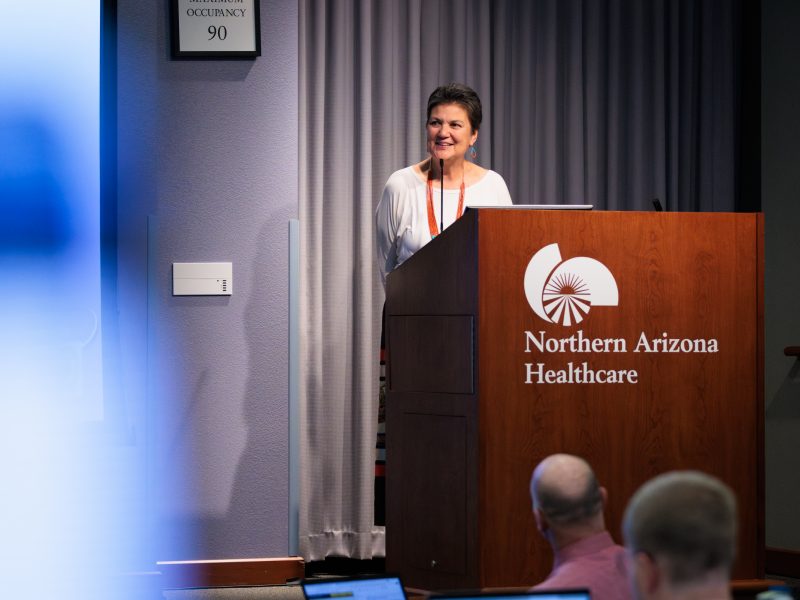ABRC’s 6th Annual Workshop Series transformed care for providers, professionals, and scholars
Introduction
The Arizona Biomedical Research Centre (ABRC) and the Northern Arizona University Center for Health Equity Research (NAU CHER) collaborated for their 6th annual workshop series this spring.
This series included five workshops on health-related topics such as healthcare provider burnout, substance use disorders, water access, body mass index (BMI), and health equity issues at the border held across the state in Flagstaff, Phoenix, and Yuma.
The workshops attracted a diverse audience of healthcare providers, medical professionals, scholars, and educators to hear from the experts on breaking healthcare news.
Addressing Burnout: Institutional Models for Retaining Healthcare Workforce
The “Addressing Burnout: Institutional Models for Retaining Healthcare Workforce” workshop in February focused on mitigating burnout among healthcare workers through discussions and activities like chair yoga and box breathing.
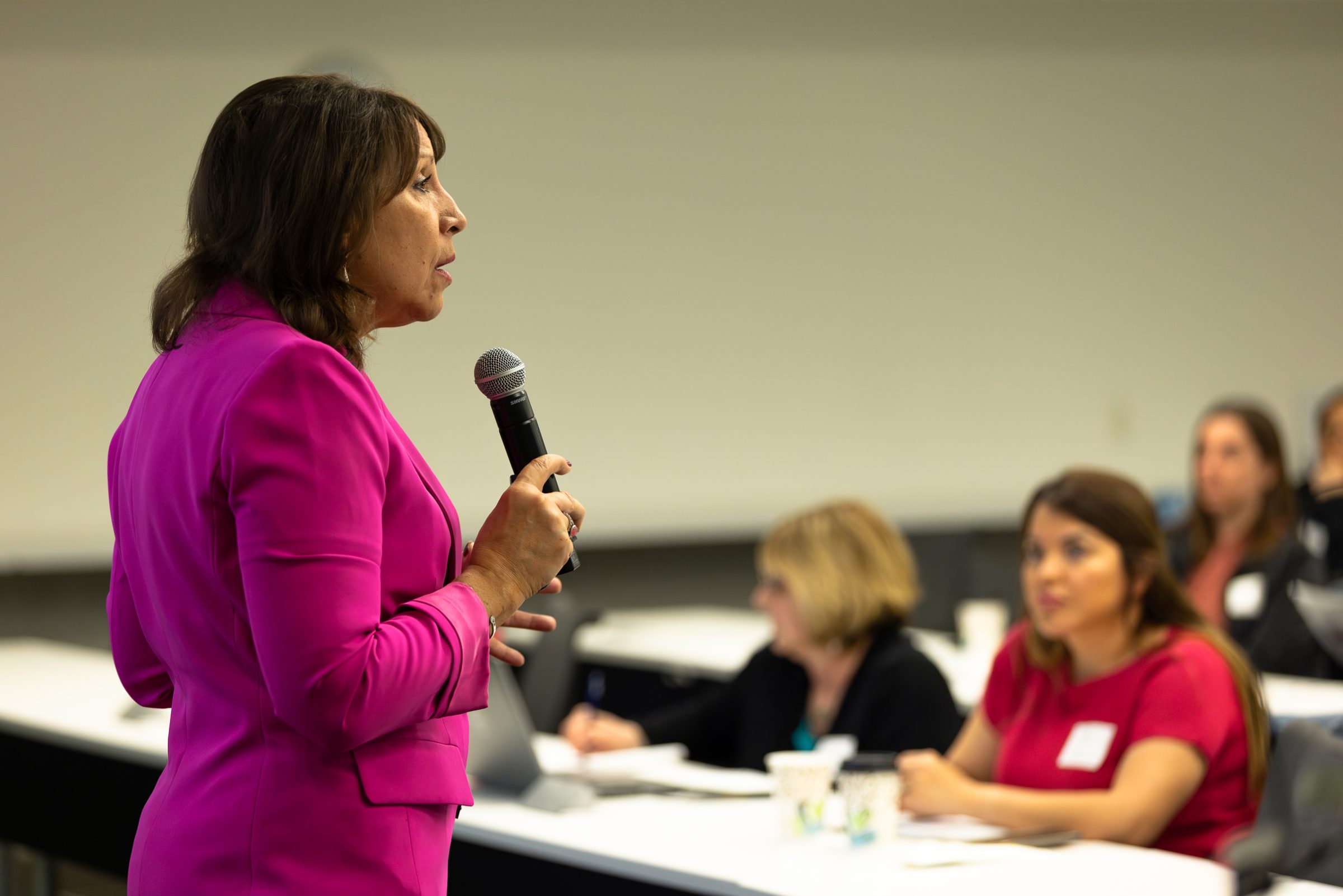
Bernadette Melnyk, Chief Wellness Officer at Ohio State University, emphasized the importance of fostering wellness cultures in healthcare and shared the story of Dr. Lorna Breen, an ER physician who died by suicide due to mental health stigma.
Melnyk advocated for systemic changes and leadership involvement in creating supportive environments to reduce burnout. She also highlighted evidence-based stress management techniques and the need to alleviate administrative burdens to enable healthcare professionals to prioritize patient care.
The workshop featured presentations and a panel discussion with Oaklee Rogers, Griselda Escalon, and Kate Gawlik, who presented strategies to combat burnout. Erin Dimas, an Occupational Therapy Doctorate student, shared her experiences with stress and advocated for early intervention and proactive wellness initiatives.
Interventions for Substance Use Disorders: Crisis Management and Treatment Resources
The “Interventions for Substance Use Disorders” workshop in March addressed the unique challenges faced by rural and underserved populations in northern Arizona.
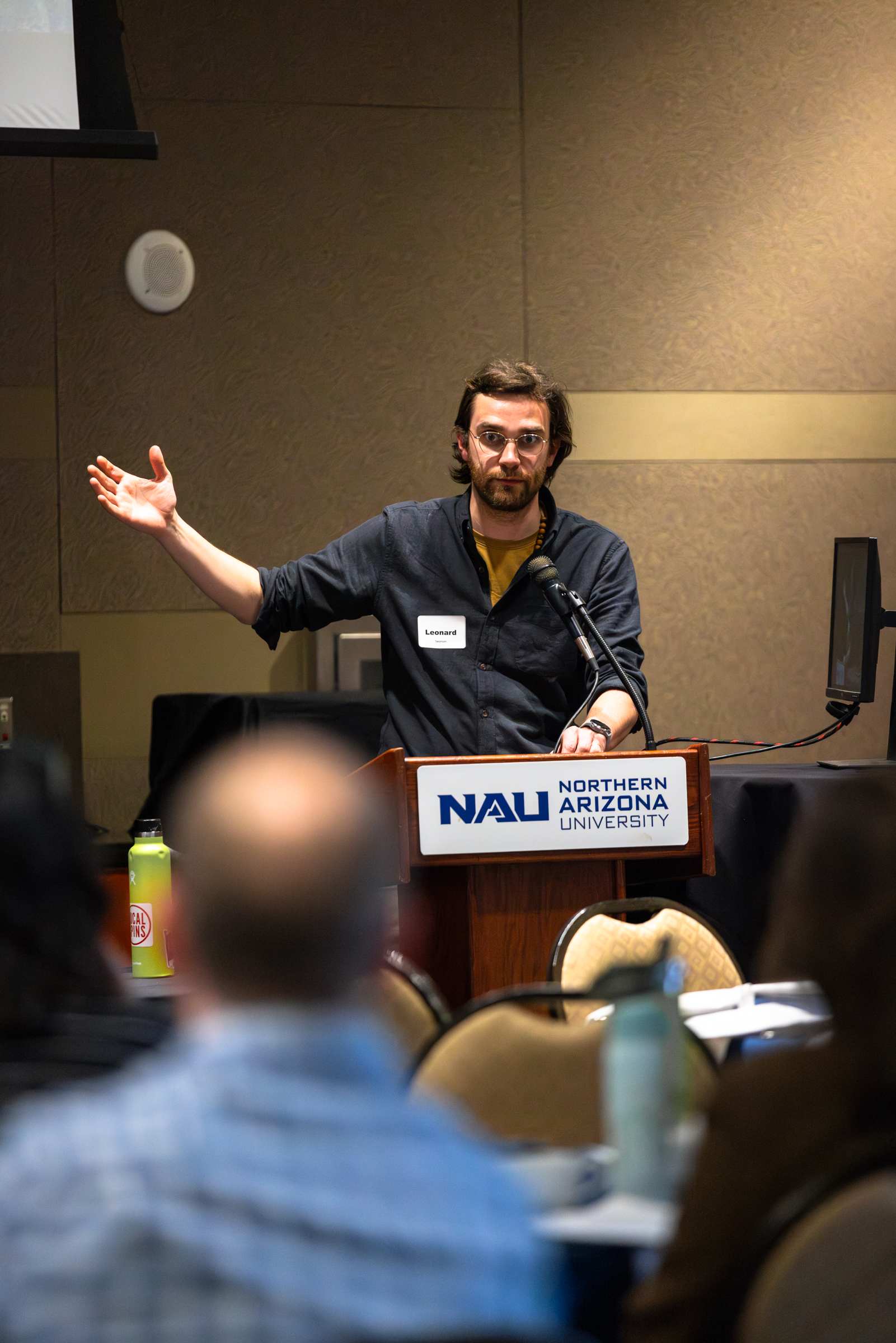
Keynote speaker Leonard Swanson, from Wayne State University, discussed his work at the Center for Behavioral Health and Justice, emphasizing evidence-based practices to support individuals with substance use disorders.
Dr. Jennifer Conn, CEO of Flagstaff Emergency Physicians, addressed the treatment of substance use disorder patients in the emergency department, highlighting the need for additional resources beyond initial medical stabilization.
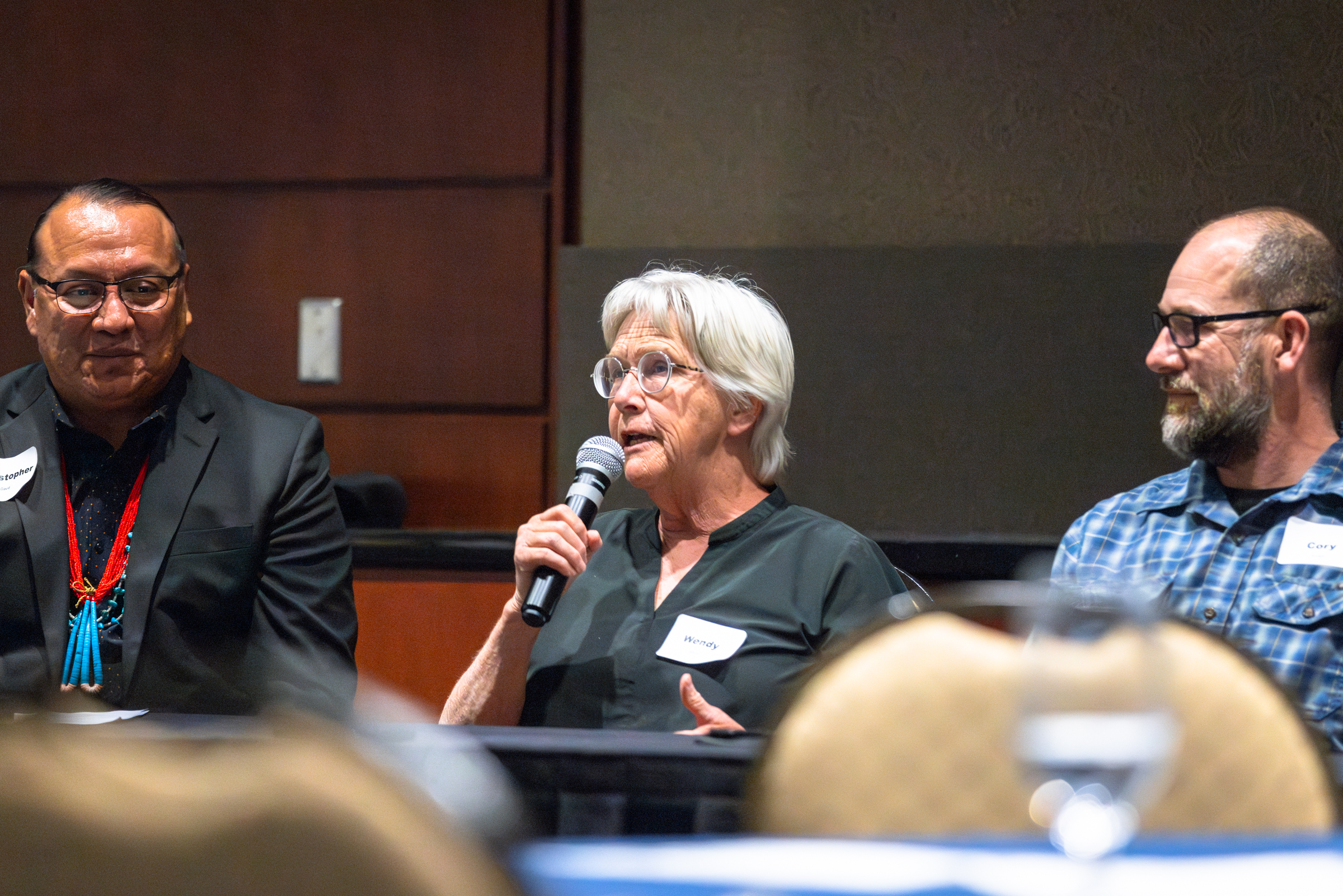
A panel discussion on Crisis Management and Treatment Resources included insights from Holly Figueroa, Wendy White, Cory Runge, Christopher David, Tatum Covey, and Kelli Gonzales. They discussed their work in managing crises and the available treatment options, followed by a Q&A session with the audience.
Navigating Water Injustices: Impacts and Interventions
The “Water Access: The Healthcare Response to Water Scarcity and Quality” workshop examined the impact of water rights and access on public health, focusing on disadvantaged communities.
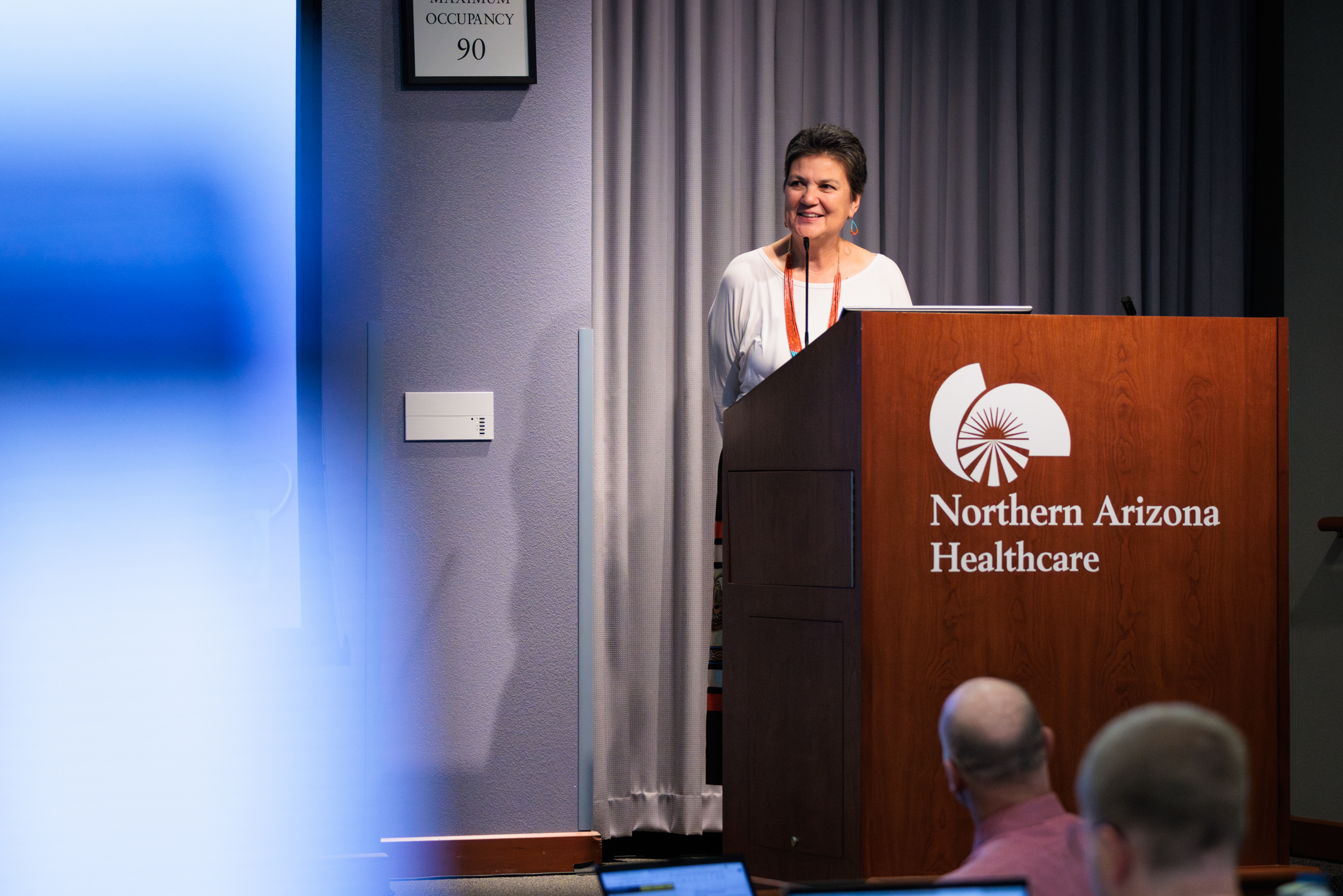
Jani Ingram, from Northern Arizona University, presented on “Water Characterization of Navajo Unregulated Water Sources,” highlighting infrastructure deficiencies, water rights issues, and uranium mining impacts on the Diné people.
Hsini Lin and Niki Lajevardi-Khosh from the Arizona Department of Health Services, discussed “The Intersection of Public Health and Drought,” emphasizing the health effects of droughts and public health efforts to support affected populations.
Michael Charles, from Cornell University, delivered a talk titled “Swimming Upstream Against Consequences Carried by Currents,” underscoring the dynamic and essential nature of water as more than a commodified resource.
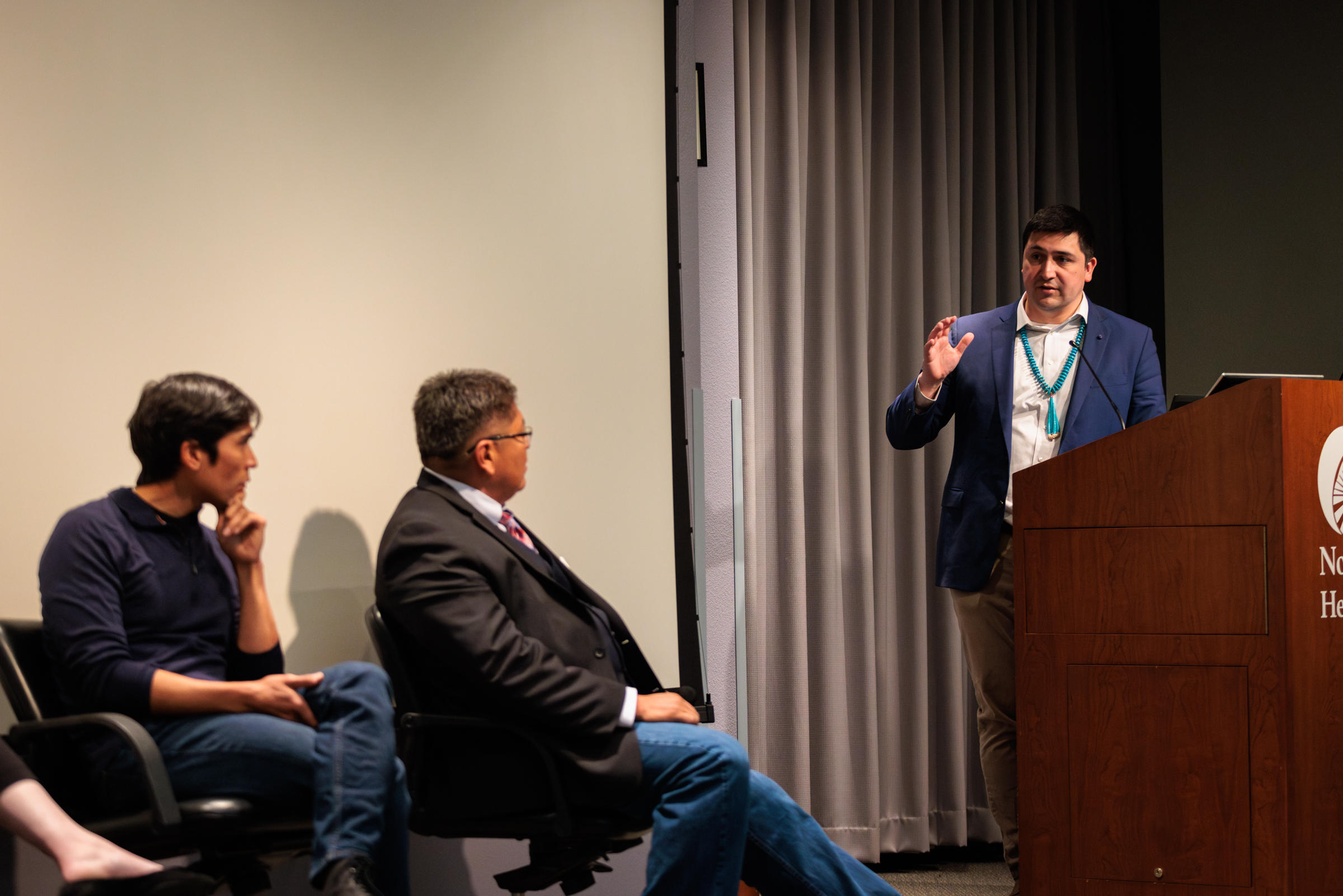
A panel discussion on “Bridging the Gap between Water Injustices and Health Practices” featured Michael Charles, Jonathan Credo, Sarah Roach, and Tommy Rock. They explored water injustices, their causes, and potential solutions.
ABRC Education Program PI Steve Palmer concluded, “We need local solutions, local interventions, and remediation that don’t negatively impact our neighbors.”
Reimagining Health Metrics: Beyond BMI
The “Beyond BMI” workshop offered new perspectives on using Body Mass Index (BMI) as a health measurement tool. Glenn Gaesser, from Arizona State University, contrasted weight-centric and weight-neutral approaches to health, advocating for increased physical activity and its benefits.
Kimmie Singh discussed “Expanding Provider Perspectives: Unpacking Body Politics and Cultural Competency,” emphasizing the intersection of race and weight and the need for intersectional, weight-inclusive care.
Jeff Hunger from Miami University, and Janet Tomiyama from UCLA, delivered a talk on “Weight, Weight Stigma, and Size-Inclusive Approaches to Care,” highlighting that weight is not an accurate health indicator.
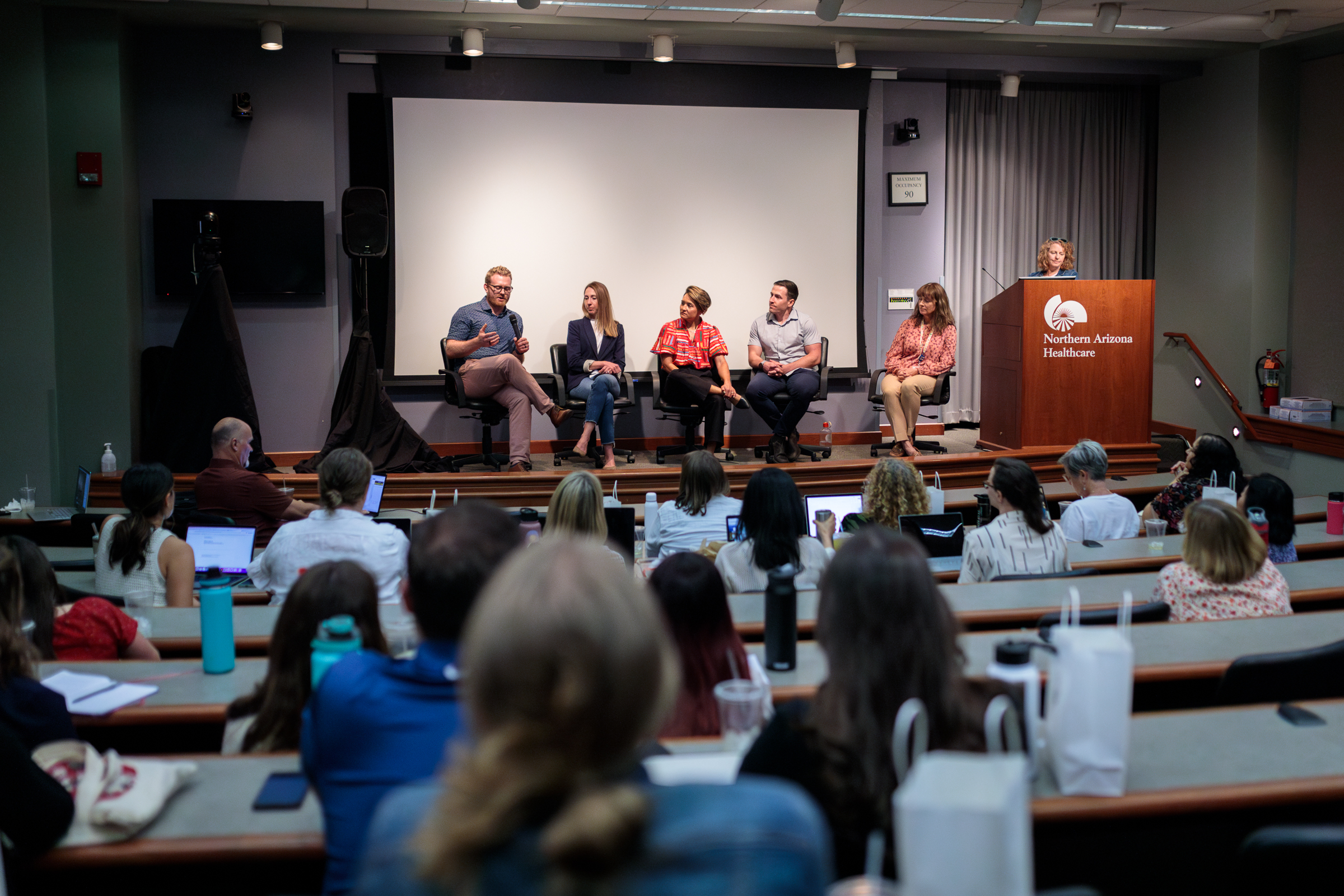
A panel on “Weight Inclusive Providers” included Abby Chan, Brian Kinslow, Amy Britt, Jessica Holst, and John Bridger, who shared their experiences treating patients in a body-positive manner and answered audience questions.
Yuma Conference: Turning Research into Action
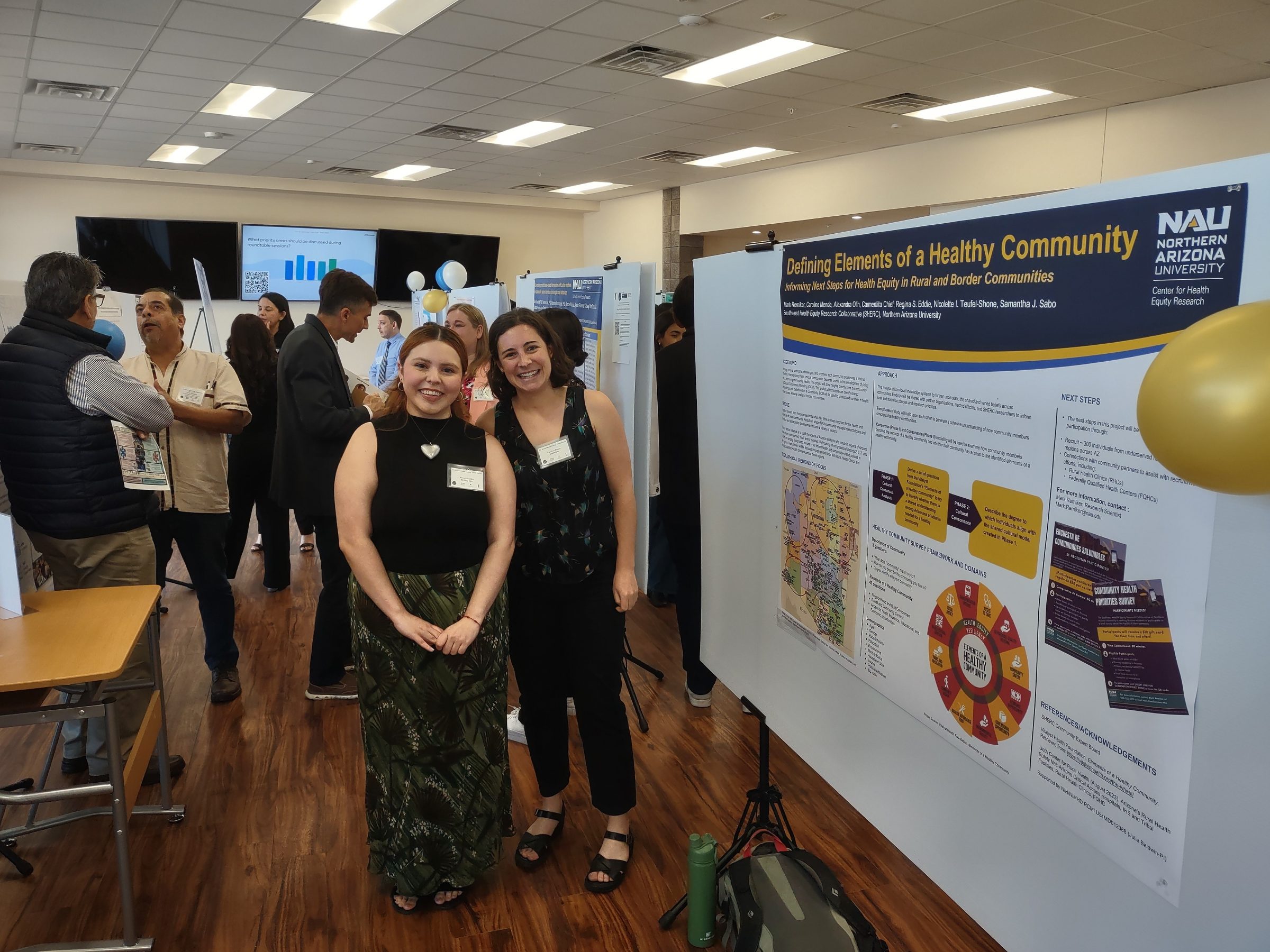
The ABRC 6th Annual Yuma Conference focused on research education, community outreach, binational work, and the border region workforce. A summary of previous efforts was presented, along with new research and service opportunities.
The conference provided a platform for researchers and front-line healthcare providers to discuss their experience and findings and translate them into actionable strategies.
The future of collaborative healthcare
The 6th annual ABRC workshops underscored the profound impact that collaborative efforts can have on advancing healthcare knowledge and practice.
By bringing together a diverse group of healthcare professionals, scholars, and community leaders to focus on emerging issues in health, these events fostered a dynamic exchange of ideas and strategies to address pressing health challenges. From addressing burnout and substance use disorders to exploring the critical issues of water access and the limitations of BMI, the workshops provided invaluable insights and practical solutions.
As healthcare continues to evolve, the collective efforts of these dedicated professionals will be essential in driving forward innovative, culturally relevant, and patient-centered care. The knowledge and connections forged at these workshops promise to inspire continued progress and collaboration, ultimately leading to healthier communities and more equitable healthcare systems.
